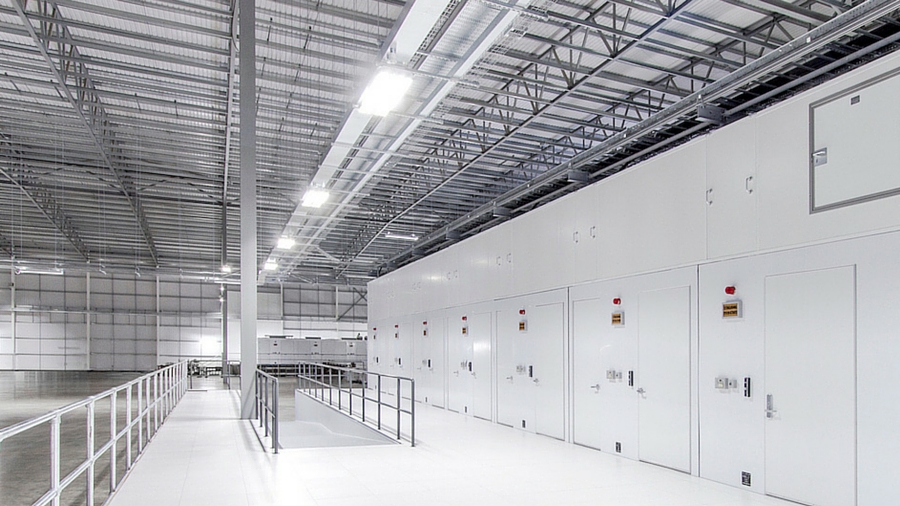How colocation data centres can help your small business
Data centres aren't just for giant corporations…
Improved global footprint
Jorge Balcells, director of technical services at Iceland-based data centre operator Verne Global, says colocation can help businesses improve their global footprint and reduce overall carbon contribution. There's also potential for getting access to low-cost power that'll last years.
"In today's data-driven economy, business innovation is dependent on the effective management of data insights. Companies looking to expand must gauge whether retaining control of data centre operations or outsourcing to colocation sites is the most efficient solution," he observes.
"In many scenarios, outsourcing to the experts – the colocation providers – makes the most financial sense, as the high cost of power, metropolitan real estate, and the long-term op-ex associated with running data centre campuses adds up.
"Other advances include the ability to expand the global footprint of your business quickly and easily, with minimal upfront expense; the possibility of reducing your carbon-impact and the knock-on benefit of being able to guarantee low-cost power for years to come; as well as the assurance that colo facilities' policies, procedures and technologies are kept up-to-date, delivering you the highest standard of data centre management at all times."

Quick access to the public cloud
Simon Francis, colocation director at data centre firm Digital Reality, says colocation will play a fundamental part in IT operations as data continues to become more complex, and allows businesses to connect to the public cloud within a fraction of a second.
Francis told us: "As data grows in size and importance, colocation will become mission critical. It gives customers the opportunity to access the public cloud in under 1.5 milliseconds. IT teams will be able to interconnect with an ecosystem of partners more easily, quickly and cost effectively.
"By colocating in environments that can house a company's private cloud storage in close proximity to public cloud providers' compute nodes, companies can quickly connect to the public cloud via cross connect with extremely limited lag-time and no expensive network tethers.
Are you a pro? Subscribe to our newsletter
Sign up to the TechRadar Pro newsletter to get all the top news, opinion, features and guidance your business needs to succeed!
"Companies need to be mindful of where they establish the private portion of their hybrid cloud. It's important they really do their homework and not only think about what their requirements are today, but also what their potential future requirements will be."

More control over IT
Firms also get more control through colocation. Emma Fryer, associate director of British technology trade body TechUK, says: "Colocation allows companies to retain control over their IT function while taking advantage of far better resilience, energy efficiency, connectivity and security.
"Organisations today are increasingly IT dependent and keeping critical IT functions on company premises can compromise business continuity and add unnecessary cost, particularly if they are in hot, poorly ventilated server cupboards with only enough backup to allow them to power down safely.
"So moving all this to a purpose-built secure facility is an obvious choice for many. The decision to outsource to a colocation provider is often taken when companies are faced with the need to upgrade or refresh their IT capabilities and many do it to make cost savings, particularly capex, as well as reducing financial and other risk."
Colocation will only continue to grow
Building new data centres is extremely costly, especially in light of the current financial uncertainty circling Brexit. Jon Leppard, COO of IT firm Future Facilities, says colocation will continue to be the most viable and popular option for businesses wanting to manage their data. He predicts that Britain's exit from the European Union will give the colocation market an even bigger boost.
"A data centre is at its core a bricks-and-mortar investment based on a long-term business view, so it is not surprising that in the light of the uncertainty caused by Brexit, we have noticed increased caution from the UK industry in committing to new build projects until the economy is more stable," Leppard says.
"We are also seeing increased investment from the US and other countries, looking to rent data centre space in the UK during this period of the weaker pound. I predict there to be a natural increase in the use of colocation and shorter-term projects, instead of businesses choosing the new build option, until the outlook is clearer. That said, there is a general trend of the industry moving towards colocation, so Brexit may just be a catalyst for the quicker adoption of this model in the UK."
Although it can be a nice luxury to own your own data centre facility, it certainly isn't an option open to every business out there. SMEs, which often have to manage tight budgets and spend appropriately, can use colocation as a way to get the same data benefits but at a much cheaper price. And as more firms discover this area of tech, it'll no doubt continue to grow in the future.
Nicholas Fearn is a freelance technology journalist and copywriter from the Welsh valleys. His work has appeared in publications such as the FT, the Independent, the Daily Telegraph, The Next Web, T3, Android Central, Computer Weekly, and many others. He also happens to be a diehard Mariah Carey fan!